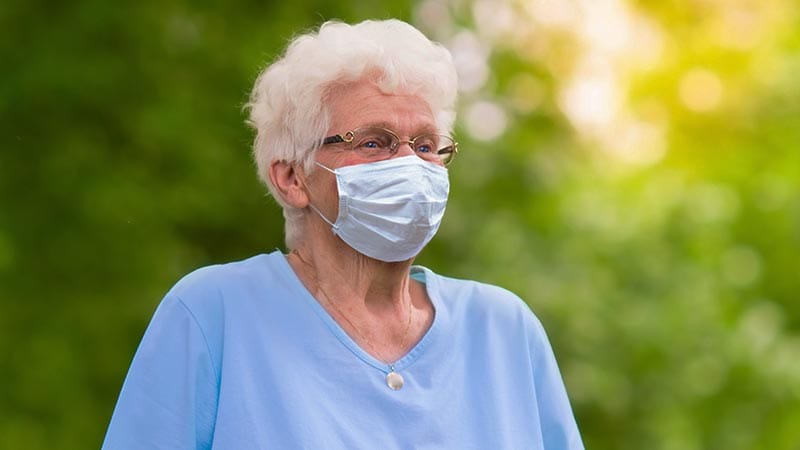Elderly Patients at Highest Risk for Severe COVID Outcomes in British Columbia
핵심 개념
Elderly patients, especially those aged 80 years and older, face the highest risk of severe outcomes from COVID-19 infection.
초록
The content discusses a study conducted in British Columbia, focusing on the risk of severe COVID-19 outcomes in different age groups. Key highlights include:
Patients aged 80 years or older had the lowest SARS-CoV-2 seroprevalence rates.
Patients aged 70-79 and those aged 80 years or older had the highest risks for hospitalization and death.
The study emphasized the need to prioritize vaccination for elderly individuals.
The risks of severe outcomes were derived in a highly vaccinated population.
The study used random blood samples to minimize volunteer biases.
The study may underestimate the population prevalence of prior infection due to testing methods.
Elderly Patients at Highest Risk for Severe COVID Outcomes
통계
"Adults aged 80-plus years had about 10 times higher risk of hospitalization [from a first infection] than children under age 5 years, and about 10 times higher risk of death than the next-oldest age band: 70 to 79 years." - Danuta M. Skowronski, MD
"The risks for hospitalization (< 0.3%) and death (< 0.1%) due to first SARS-CoV-2 infection were low overall." - Danuta M. Skowronski, MD
"Our estimates of the severe outcome risks due to first-ever infection were derived in a highly vaccinated population." - Danuta M. Skowronski, MD
인용구
"This is a very well-done study, as it uses random blood samples, therefore minimizing volunteer biases from survey-based methodology." - Zain Chagla, MD
"This means that there are still a number of elderly individuals that are still experiencing first infection, where there is the highest risk of complications." - Zain Chagla, MD

더 깊은 질문
How can healthcare systems better prioritize vaccination for elderly individuals in the face of evolving COVID-19 variants?
Healthcare systems can prioritize vaccination for elderly individuals by implementing targeted outreach programs specifically tailored to this demographic. This can involve setting up dedicated vaccination clinics in senior centers, retirement communities, and nursing homes to ensure easy access for elderly individuals. Additionally, healthcare providers can conduct home visits for those who are unable to travel to vaccination sites. Utilizing mobile vaccination units to reach elderly individuals in rural or underserved areas can also be effective. Furthermore, healthcare systems can collaborate with community organizations and local authorities to raise awareness about the importance of vaccination for the elderly and address any concerns or barriers they may have.
What are the potential implications of underestimating the population prevalence of prior infection in determining COVID-19 risks?
Underestimating the population prevalence of prior infection in determining COVID-19 risks can have significant implications for public health decision-making. If the true extent of prior infections is underestimated, it may lead to an overestimation of the risks associated with COVID-19, particularly in terms of hospitalization and fatality rates. This could result in unnecessary panic, strain on healthcare resources, and potentially misguided policy decisions. Additionally, underestimating prior infection prevalence may impact vaccination strategies, as it could lead to a misallocation of resources and a failure to target populations that may already have some level of immunity. Accurately assessing prior infection prevalence is crucial for developing effective public health interventions and vaccination campaigns.
How can the study's findings be applied to improve vaccination strategies for other age groups beyond the elderly population?
The study's findings can be applied to improve vaccination strategies for other age groups by highlighting the importance of targeted vaccination efforts based on age-specific risk profiles. Healthcare systems can use the data on infection-induced seroprevalence rates and risks for severe outcomes to prioritize vaccination for age groups that are at higher risk, such as adults aged 70-79. By tailoring vaccination campaigns to address the specific needs and vulnerabilities of different age groups, healthcare systems can maximize the impact of vaccination efforts and reduce the overall burden of COVID-19. Additionally, the study underscores the importance of ongoing monitoring and surveillance to adapt vaccination strategies in response to changing epidemiological trends and emerging variants.
0
